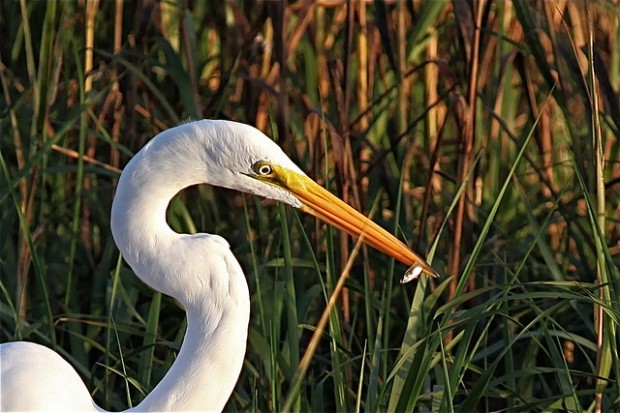We have much more to do and your continued support is needed now more than ever.
NWF Urges Justices to Maintain Florida Wetlands Protections
This week the U.S. Supreme Court hears another case challenging protections for wetlands: Koontz v. Saint John’s River Water Management District. This challenge, brought by the Pacific Legal Foundation and a landowner named Coy Koontz, intentionally pits Florida’s wetland protections for the Saint John’s River Basin against Koontz’s private property rights (for background on the case, see this Orlando Sentinel story).
Koontz’s suit ignores the public’s strong interest in wetlands protection and the state and federal laws protecting that public interest. It is critically important for people and wildlife that the Court does not, and that the Supreme Court justices understand and respect the public’s strong interest in wetlands protection and the state and federal laws protecting that public interest.

What the Science Says
The real “friends of the Court” on whose behalf this brief was written are distinguished wetland scientists, academics, and professionals who are former members of the National Research Council (NRC) Committee on Mitigating Wetland Losses. Their 2001 NRC report, “Compensating for Wetland Losses under the Clean Water Act,” concluded that the widely accepted policy goal of “no net loss” of wetlands was not being achieved. The report recommended policy reforms to ensure that permit conditions reflect a tight nexus between wetland functions lost as the result of permitted activity and wetland functions gained through compensatory mitigation projects.
In our brief, and in our on-going wetlands work, we emphasize:
- Wetlands provide essential ecosystem services and economic value to people, businesses, and communities. These ecosystem services include improving water quality, providing flood control and coastal storm mitigation, supporting fish, shellfish, avian, and other wildlife populations, and sequestering climate-harming carbon.
- The destruction and degradation of wetlands trigger a cumulative loss of wetland functions and services, harming people, communities, and wildlife.
- Consequently, “no net loss” of wetland function is a widely accepted objective of federal and state water law.
- To achieve “no net loss,” wetland impacts must be avoided and minimized to the extent practicable. Any remaining impacts should then be eliminated or offset through compensatory mitigation projects: restoration, enhancement, creation, and/or preservation of other wetlands.
- There must be a tight nexus between wetland functions lost due to permitted activity and wetland functions to be gained through wetland mitigation in order to achieve “no net loss” of wetland functions and services and protect the public’s interest in the water quality, flood protection, and fish and wildlife habitat services that wetlands provide.
Wetland scientist Joy B. Zedler, past chair of the NRC Committee on Mitigating Wetland Losses, sums it up best: “There is no excuse to continue to allow wetland losses, now that we know how effective wetlands are in providing clean water and other essential services.”
The wetland scientists have spoken. Let’s hope the Supreme Court will listen.





















